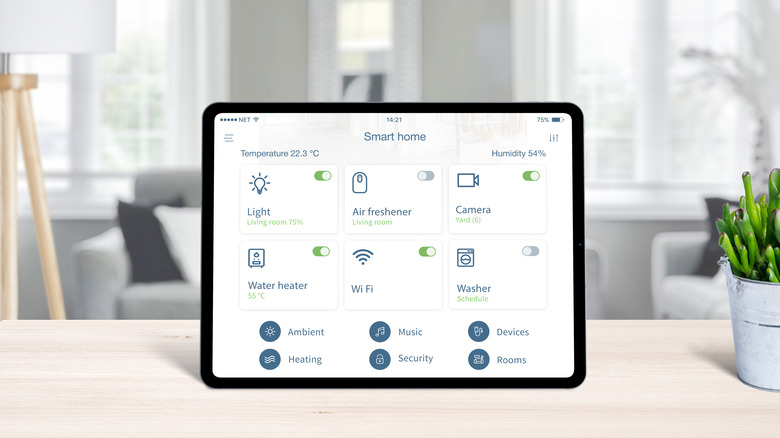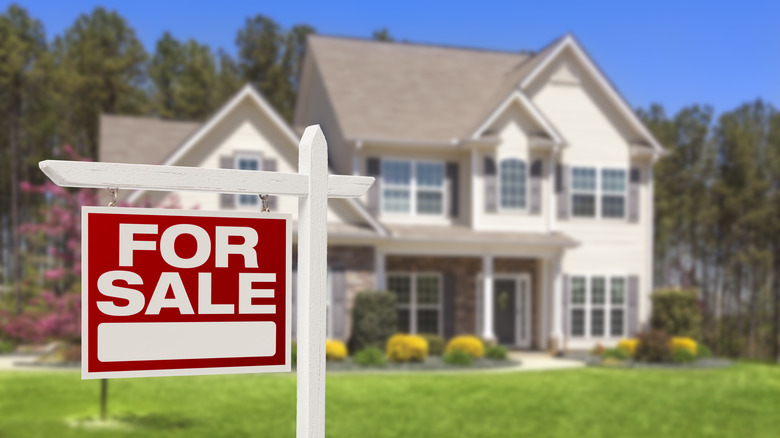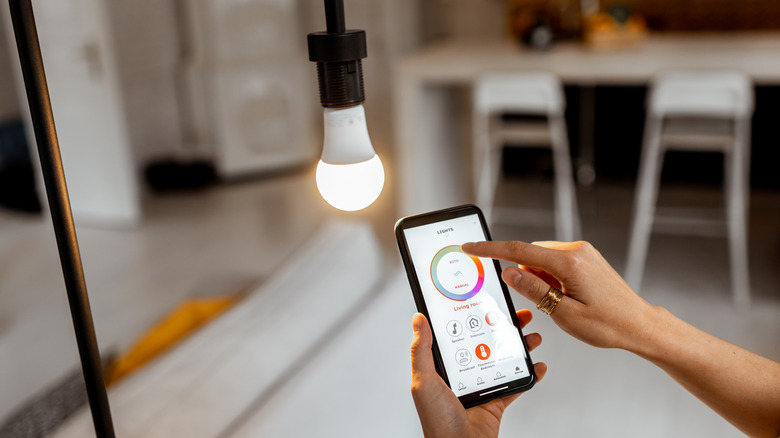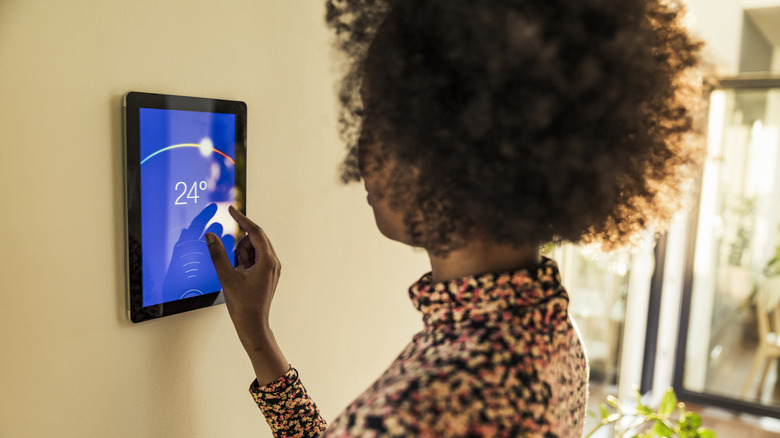How Much Value Can Smart Devices Really Add To Your Home?
In a society where technological advancements are simplifying nearly every aspect of daily life, it's no surprise that home developers and buyers alike are expressing increased interest in incorporating high-tech devices into their new construction builds and dream home wishlists. With such features increasing in public demand, the question arises as to whether home sellers can benefit from upgrading to smart products in their homes to later sell at a higher price point. Evidence points to this being somewhat true, as home values may potentially increase by 5% following the implementation of smart technology, according to research from Consumer Reports. This increase isn't a given, however, and certain experts warn against installing smart devices purely just to boost the resale value.
A "smart home" comes equipped with features that, through internet connectivity, are capable of being controlled from a digital "central hub," like a smartphone or tablet. These features may include smart appliances, like refrigerators, ovens, washers and dryers, or emergency alert technology, like smoke detectors and security systems. Let's look into how smart home products may impact your house's property value while also making the lives of those living inside easier and more affordable.
Is a smart home worth more?
Are homes with smart technology integrations really worth more on average than their counterparts lacking smart technology? To determine this, it may be useful to better understand the condition of the current housing market, as well as what modern buyers are interested in.
Age demographics of homebuyers are shifting with time as millennials and members of Gen Z begin obtaining homeownership in markets across the country. As buyers from newer generations gain traction within the housing market, the demand for smart features inside homes rises since these generations are generally more accustomed to interacting with technology. As a home seller, it's likely you'd also want to yield a greater return on your investment (ROI), no matter the upgrade. The average cost to "automate" a house ranges from $2,000 to $6,000, although enhancements can easily exceed $10,000. But smart homes, if upgraded and marketed correctly, can potentially result in buyers spending 3% to 5% more on a property to avoid installing these devices later on. While this ROI bump isn't a given, it may serve as an extra incentive if you have already been considering adding smart features to your home.
Which devices yield the best return?
Deciding to upgrade your house with smart devices is one thing, but selecting the right tech to incorporate may be a tougher decision. If you aren't sure where to start, smart appliances may be worth looking into as they tend to generate one of the highest ROI percentages among all available smart devices. The average smart appliance prompts an ROI percentage around 11% higher than that of its standard counterpart. Because location, size, age, and a range of other factors weigh into determining a listing's resale value, and given the fact that appraisers each employ varied tactics when valuing a home, it's impossible to list exact estimates regarding how much each type of smart device will increase the value of your house.
The devices with the greatest returns on investment also tend to be those that reduce homeowners' energy spending overall. For example, smart lighting options certainly come with their share of convenience, but they also save homeowners a lot of money by slicing energy costs. Smart thermostats also allow owners to cut back on their heating and cooling usage, shrinking bills by upwards of 30%, per a study from the American Council for an Energy-Efficient Economy, making these devices especially appealing to potential buyers. While all of this information may have you pulling out your wallet to start buying smart devices, you may want to consider a few key things before forging ahead.
Keep this in mind when considering adding smart devices
While smart devices may appeal to certain buyers, experts warn against installing them just for the sake of upping the resale value. "... A homeowner shouldn't go out of their way to add smart tech just to sell a home," Jared Antin, managing director of Elegran Real Estate in New York, explained to Mansion Global. "Rather, if they need to replace a smoke detector, light switch, thermostat, appliance, etcetera, they should opt to install a well-known smart device, rather than a traditional [one] — but not go and replace perfectly functional traditional items thinking they would raise the value, because they won't."
Long story short, if installing a smart thermostat or other smart device piques your interest, go ahead and do it, but only because you want it, not because you think it will entice future buyers. Think of it this way: A tech-loving buyer wouldn't necessarily walk away from a purchase just because there isn't smart lighting. But someone who isn't all about the fuss may walk away if a home includes permanent smart amenities that feel too difficult to navigate or maintain.
If you find a smart device that appeals to you, by all means, go ahead and incorporate it into your home. Even if it doesn't increase the resale value, you may be able to take it with you when you move so you can enjoy its benefits in your new abode.



